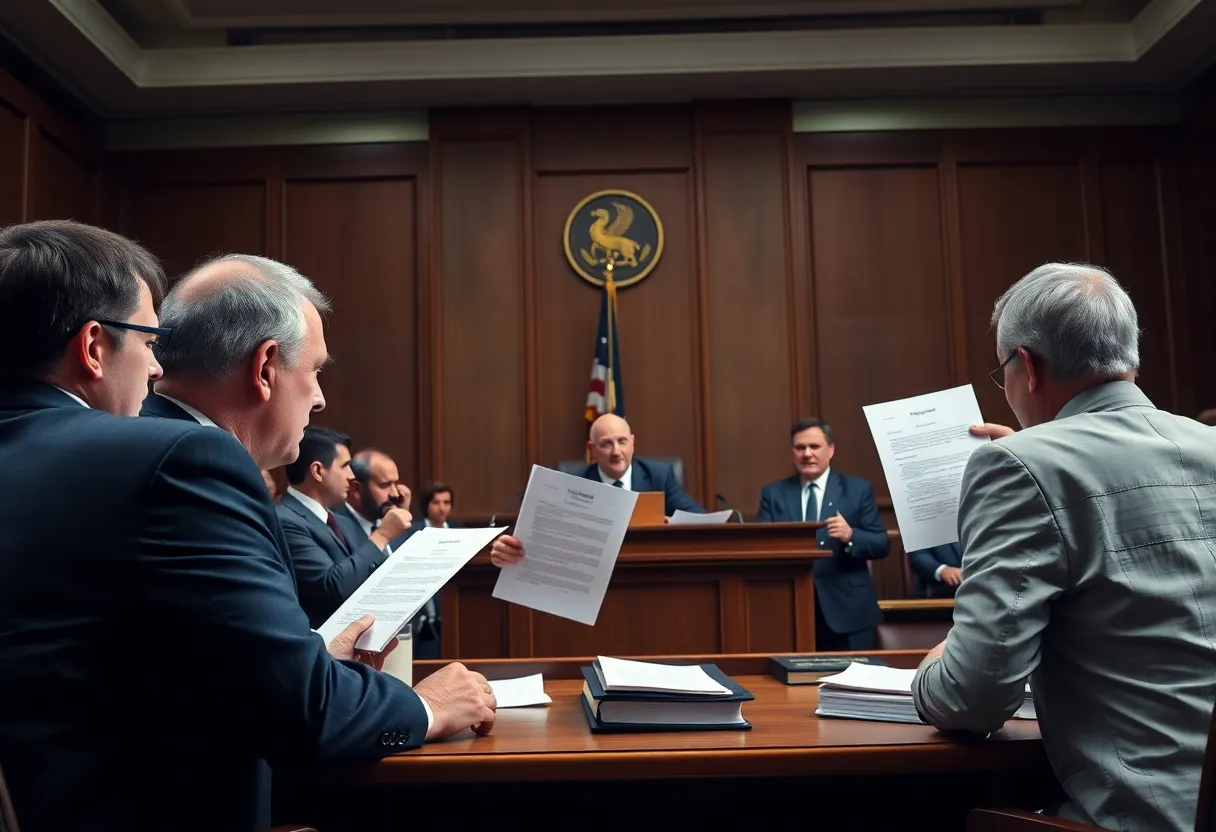News Summary
Daimler, PACCAR, Volvo Group, and International Motors have filed a lawsuit against California’s Advanced Clean Trucks (ACT) mandate. They claim compliance has become impossible due to recent federal emissions rollbacks. The lawsuit seeks clarification and injunctive relief against CARB’s enforcement of the ACT, challenging the legality of the state’s regulations. While California officials stand firm on compliance, manufacturers express concerns over conflicting federal and state standards, highlighting the ongoing tension between ambitious climate policies and regulatory constraints.
SACRAMENTO, California – Major truck manufacturers Daimler, PACCAR, Volvo Group North America, and International Motors have initiated a lawsuit to suspend enforcement of California’s Advanced Clean Trucks (ACT) mandate. This legal action, filed in the U.S. District Court for the Eastern District of California, comes as these companies express that compliance with the mandate has become an “impossible” situation following recent federal rollbacks of emissions standards.
The lawsuit represents a direct response to recent federal actions, including the Congressional approval and Presidential measures that invalidated a crucial waiver from the Environmental Protection Agency (EPA). This waiver had allowed California’s regulations to remain in effect. With the federal government’s actions undermining their operational framework, the manufacturers argue that clarity on emissions standards is essential for planning their product production for model year 2026.
The Engine Manufacturers Association (EMA), which represents these truck manufacturers, had previously entered into an agreement called the Clean Truck Partnership (CTP) in 2023. This partnership aimed to facilitate compliance with the ACT while aligning California’s stringent standards with federal EPA regulations. However, California officials have declared that the actions taken at the federal level to overturn the waivers are illegal and are urging manufacturers to adhere to the CTP rules regardless of the conflicting federal regulations.
Amid this ongoing dispute, the California Air Resources Board (CARB) has also pursued its legal remedies against the federal government, asserting that waivers granted by the EPA are not subject to the Congressional Review Act. The truck manufacturers, in their lawsuit, have referenced a letter received from the Department of Justice on August 7, which instructed Daimler to halt compliance with both the CTP and California’s vehicle emissions regulations.
The manufacturers are seeking clarification from CARB regarding their obligations under the CTP, citing that its requirements have been rendered invalid due to the notion of federal preemption. Additionally, a Manufacturers Advisory Correspondence from CARB issued on May 23 mandated engine makers to observe CARB’s preempted standards if they wish to sell vehicles legally in California.
California Governor Gavin Newsom’s executive order has added pressure on manufacturers, suggesting they face unfavorable regulatory treatment if they do not comply with the ACT mandates. Despite CARB’s attempts to modify the ACT for greater flexibility, criticism persists regarding the enforcement of the CTP commitments and the ACT’s overall requirements, which the EMA had previously indicated were burdensome.
The lawsuit emphasizes the manufacturers’ challenges in facing what they term a “reckless” stance from California, especially as it continues to enforce the ACT alongside additional emissions mandates. The elimination of the Advanced Clean Fleets rule has exacerbated the situation, complicating compliance with the ACT, which was initially designed to mandate fleets to purchase a certain percentage of zero-emission vehicles.
The legal filing includes claims that California’s actions violate the Clean Air Act’s preemption provisions and challenge the constitutionality of a provision in the CTP that disallows manufacturers from contesting CARB’s regulations. Through this lawsuit, the manufacturers are seeking injunctive relief to prevent CARB from enforcing the ACT and related regulations.
While CARB has chosen not to comment on ongoing litigation, the Clean Freight Coalition has voiced support for the truck manufacturers’ lawsuit against CARB, asserting it is necessary for the industry. Conversely, critics from environmentalist circles argue that the manufacturers’ claims deviate from the intended purpose of the Clean Truck Partnership, which aimed to support compliance during periods of regulatory transition.
This lawsuit underscores the broader conflict between California’s ambitious climate policies and the recent federal regulatory rollbacks, placing truck manufacturers in a challenging situation as they navigate through converging yet conflicting regulatory landscapes.
Deeper Dive: News & Info About This Topic
- FreightWaves: Truck Manufacturers Lawsuit
- Politico: California Truck Emission Rules
- San Francisco Chronicle: California Trucking Lawsuit
- Wikipedia: California
- Google Search: Truck Emission Lawsuit California

Author: STAFF HERE CORONADO
The Coronado Staff Writer represents the experienced team at HERECoronado.com, your go-to source for actionable local news and information in Coronado, San Diego County, and beyond. Specializing in "news you can use," we cover essential topics like product reviews for personal and business needs, local business directories, politics, real estate trends, neighborhood insights, and state news affecting the area—with deep expertise drawn from years of dedicated reporting and strong community input, including local press releases and business updates. We deliver top reporting on high-value events such as the Coronado Island Film Festival, productions at Lamb’s Players Theatre, community workshops at John D. Spreckels Center, and iconic celebrations at Hotel del Coronado. Our coverage extends to key organizations like the Coronado Chamber of Commerce and Visit Coronado, plus leading businesses in hospitality, dining, and tourism that drive the local economy. As part of the broader HERE network, including HERESanDiego.com, HEREHuntingtonBeach.com, HERELongBeach.com, and HERELosAngeles.com, we provide comprehensive, credible insights into Southern California's dynamic landscape.


